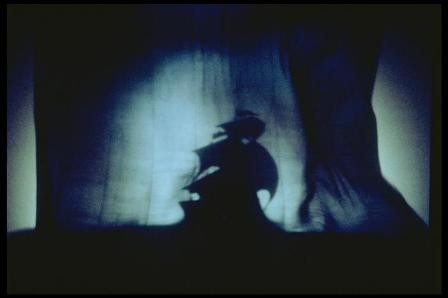Troppo intensa la vita di Giorgio Strehler per aver bisogno di complicazioni con un racconto che non sia solo cronologicamente classico, ma esaustivo. Anche per una semplice ragione: è un qualcosa che manca. Il film parte quindi dall’affresco di Trieste, la realtà multietnica e plurilinguistica dove Strehler cresce, in una famiglia dominata dall’assenza del padre e dalla presenza costante della Musica. Tra Trieste e Milano, il Piemonte, e soprattutto la città di Novara, gioca un ruolo chiave. È infatti qui che un giovanissimo Strehler, già con Paolo Grassi al suo fianco, nel gennaio del 1943 – nel corso di una licenza dal regime militare – mette in scena la sua prima regia assoluta: Tre atti unici di Pirandello, in un pomeriggio teatrale che segna la fronda artistica dagli stilemi del fascismo e l’epifania artistica di Strehler. A Novara, dove tornerà qualche mese dopo, ha quindi inizio la parabola di colui che è stato considerato il miglior regista europeo del secondo Novecento. Anche perché, a ben guardare, prima di Strehler la figura del regista nemmeno esisteva. Se dal capocomico tuttofare ai testi violentati di autori sacri si è passati al teatro di regia, di filologia, di curatela esasperata, tutto questo porta la firma di Giorgio Strehler, e ha inizio in un teatro di provincia non così provincia, oggi abbandonato, ma dove entriamo con la nostra camera per un momento visivo di enorme impatto. Milano sarà poi per Strehler città d’adozione e d’elezione: qui la scoperta dei filodrammatici è la conferma della sua vocazione teatrale. Inizia così il racconto di una carriera formidabile.
Il film-evento offrirà una miniera di voci e testimonianze inedite, grazie alle quali la parabola di Strehler si proietta nitida e ricca di suggestioni indispensabili a capire l’uomo e il suo lascito culturale. Dalla fondazione del Piccolo alla rivelazione di Bertolt Brecht, dal capolavoro goethiano alla lite con Von Karajan, il film restituisce uno Strehler emblema del Teatro, grazie a una raccolta di frammenti faustiani d’irripetibile forza narrativa. Due le direttrici tematiche: l’archivio – sui cardini espressi dalle rilevanze dei fondi Rai e il Museo Schmidl – e le interviste. Queste ultime sono la partitura “reale” che tratteggia, in simbiosi con le altre direttrici, il profilo di Strehler. Per la direzione d’orchestra, e la comune legacy mozartiana, fondamentale qui è la voce di Franca Cella. Per le scene Ezio Frigerio sarà il dominus capace di spiegarci le suggestioni della prosa e della lirica che hanno visto Strehler eccellere parimenti.
Notevole anche il contributo internazionale: Andrea Jonasson è voce di altissimo profilo testimoniale: moglie e poi vedova del Maestro, è forse la persona che più può svelarci le contraddizioni e il décalage quotidiano dell’uomo.
Il panorama strepitoso del mondo teatrale italiano odierno, tutto formatosi alla corte di Strehler e del Piccolo Teatro, sarà infine la voce corale del documentario: Giulia Lazzarini e Pamela Villoresi, Giancarlo Dettori e grandi firme della critica, Maurizio Porro e Vittoria Crespi-Morbio. E ancora i collaboratori più stretti, come Rosanna Purchia (oggi commissario al regio di Torino) e per Trieste l’immensa semplicità di Claudio Magris.
